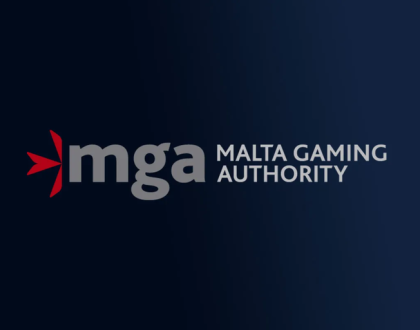Challenges in Swedish Gambling Regulation

The Swedish Trade Association for Online Gambling (#BOS) recently addressed significant concerns regarding Sweden’s #gambling regulation in an op-ed published in @DagensNyheter, Sweden’s foremost #morningnewspaper. The online release on Friday evening amplified their message to a broader #audience.
Assessing Regulatory Failures
In his comprehensive critique, Gustaf Hoffstedt, Secretary General of BOS, argues that Sweden’s recent gambling re-regulation has encountered substantial challenges, particularly highlighted by a concerning low level of channelization. This term refers to the percentage of gambling activities that are channeled into the regulated market rather than the unlicensed sector. According to Hoffstedt, this low level of channelization undermines the intended purpose of the regulatory framework, which was designed to enhance consumer protection and ensure fair competition among operators.
Hoffstedt points out that while repressive measures against unlicensed operators have been a focal point of regulatory efforts, these alone have proven insufficient to stabilize Sweden’s gambling licensing system. The presence of unlicensed operators continues to pose a significant threat to the integrity of the regulated market, offering attractive alternatives with potentially fewer restrictions and lower operating costs. This competitive disadvantage faced by licensed operators contributes to the broader issue of channelization, as consumers may be tempted to seek out unlicensed platforms due to perceived advantages.
The Call for Comprehensive Reform
To address these shortcomings, Hoffstedt proposes a multifaceted approach that goes beyond enforcement measures. He advocates for proactive regulatory initiatives aimed at incentivizing compliance and promoting the benefits of licensed gambling providers. Such initiatives could include targeted marketing campaigns to raise awareness among consumers about the risks associated with unlicensed operators, as well as financial incentives for licensed operators to invest in responsible gambling practices and technological innovations.
Moreover, Hoffstedt emphasizes the importance of regulatory flexibility in responding to market dynamics and technological advancements. The rapid evolution of online gambling platforms and digital payment methods necessitates a regulatory framework that is agile and adaptable, capable of fostering innovation while safeguarding public interests.
DN Debatt: Amplifying Social Discourse
The publication of BOS’s op-ed on DN Debatt holds particular significance within Sweden’s media landscape. DN Debatt is renowned for its role as a catalyst for public debate on pressing societal issues, offering a platform that commands attention from policymakers, industry stakeholders, and the general public alike. By publishing their critique in Dagens Nyheter, BOS leverages the influential reach of Sweden’s largest morning newspaper to underscore the urgency of reforming the country’s gambling regulatory framework.
The Stakeholder Landscape
Beyond regulatory challenges, Hoffstedt’s analysis delves into the broader stakeholder landscape within Sweden’s gambling industry. He acknowledges the diverse interests at play, ranging from consumer advocacy groups and regulatory authorities to industry operators and financial institutions. Each stakeholder group brings its own perspectives and priorities to the table, shaping the ongoing discourse surrounding gambling regulation and reform.
In particular, consumer protection emerges as a paramount concern for BOS, underscoring the need for policies that prioritize the well-being of individuals engaging in gambling activities. Hoffstedt advocates for enhanced collaboration between industry stakeholders and regulatory bodies to develop effective safeguards against problem gambling and underage participation.
Economic Implications and Market Dynamics
The economic implications of Sweden’s gambling regulation are also central to Hoffstedt’s analysis. He highlights the significant contributions of licensed gambling operators to the national economy through tax revenues, job creation, and corporate social responsibility initiatives. However, the presence of unlicensed operators threatens to undermine these contributions by diverting revenue away from the regulated market and potentially exposing consumers to unregulated and unscrupulous practices.
Moreover, Hoffstedt argues that a robust and transparent regulatory framework is essential for attracting investment and fostering sustainable growth within Sweden’s gambling sector. Uncertainty and regulatory instability, he warns, could deter potential investors and stifle innovation, ultimately compromising the long-term viability of the industry.
The Path Forward
In conclusion, Gustaf Hoffstedt’s op-ed in Dagens Nyheter offers a comprehensive assessment of the challenges facing Sweden’s gambling regulation and a compelling call to action for reform. By advocating for a balanced approach that combines regulatory rigor with proactive measures to support licensed operators, Hoffstedt aims to restore confidence in Sweden’s gambling licensing system and ensure its effectiveness in the digital age.
Conclusion
Hoffstedt’s critique underscores the precarious state of Sweden’s gambling regulatory framework, advocating for a more nuanced approach combining regulatory stringency with supportive measures to fortify the licensed sector’s viability.
FAQs
What is channelization in the context of gambling regulation?
Channelization refers to the percentage of gambling activities that are conducted through legal and licensed operators within a regulated market, as opposed to unlicensed or offshore operators. It is a critical metric used to assess the effectiveness of regulatory frameworks in directing gambling revenue into regulated channels.
Why does BOS argue that repressive measures alone are insufficient?
BOS believes that relying solely on punitive measures against unlicensed operators does not address the underlying issues driving consumers to choose unregulated platforms. Without complementary efforts to promote licensed operators and incentivize compliance, repressive measures may fail to achieve significant channelization into the regulated market.
How does DN Debatt contribute to public discourse in Sweden?
DN Debatt serves as a prominent platform for discussing key societal issues in Sweden, amplifying viewpoints through rigorous debate and analysis. Op-eds published on DN Debatt command attention from policymakers, industry leaders, and the public, shaping public opinion and influencing policy decisions.
What are the primary concerns raised by BOS regarding Sweden’s gambling regulation?
BOS highlights concerns about the low level of channelization, which indicates a significant portion of gambling activity occurring outside the regulated framework. This undermines consumer protection efforts, reduces tax revenues for public services, and poses challenges for licensed operators competing with unregulated counterparts.
How does the op-ed in Dagens Nyheter reflect BOS’s stance on regulatory reform?
The op-ed in Dagens Nyheter reflects BOS’s advocacy for comprehensive regulatory reform that balances enforcement with supportive measures for licensed operators. It underscores the need for a regulatory framework that encourages compliance, promotes responsible gambling practices, and fosters a competitive and fair gambling market.
What role does Gustaf Hoffstedt play in the Swedish Trade Association for Online Gambling?
Gustaf Hoffstedt serves as the Secretary General of BOS, representing the interests of licensed online gambling operators in Sweden. He advocates for policies that support a sustainable and regulated gambling environment, engaging with stakeholders to shape legislative and regulatory initiatives.
What distinguishes DN Debatt as a platform for societal debate in Sweden?
DN Debatt stands out as a platform for robust and influential societal debate in Sweden, offering a daily forum for diverse perspectives on critical issues. Its publication in Dagens Nyheter ensures broad visibility and impact, influencing public opinion and policy discourse across the country.
How does BOS propose to improve channelization in Sweden’s gambling industry?
BOS proposes proactive measures such as targeted marketing campaigns to raise awareness of licensed operators, financial incentives for compliance with regulatory standards, and streamlined processes to encourage new operators to enter the regulated market.
What are the implications of low channelization for licensed gambling operators?
Low channelization limits the revenue potential for licensed operators, reducing their ability to invest in responsible gambling initiatives, customer protections, and technological innovations. It also undermines the sustainability of the regulated gambling market, potentially driving operators towards unregulated alternatives.
Why is comprehensive regulatory reform deemed necessary by BOS?
BOS argues that comprehensive regulatory reform is necessary to strengthen consumer protections, enhance market integrity, and support the sustainability of licensed gambling operators. By addressing regulatory gaps and promoting a level playing field, reform can foster a safer and more competitive gambling environment in Sweden.
Recommended Posts

MGA Outsourcing Compliance Guidelines
July 3, 2024

Risk Management in Online Gambling
July 3, 2024

Bragg Gaming Expands with Hard Rock Casino
July 3, 2024



